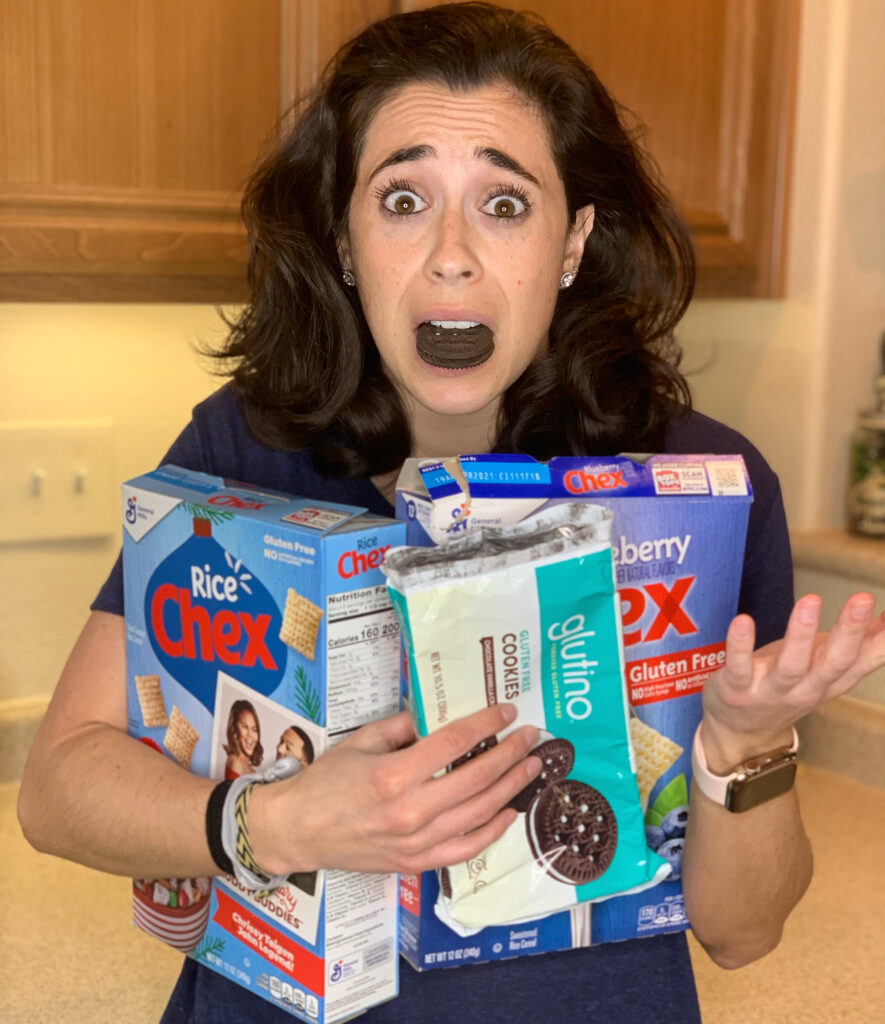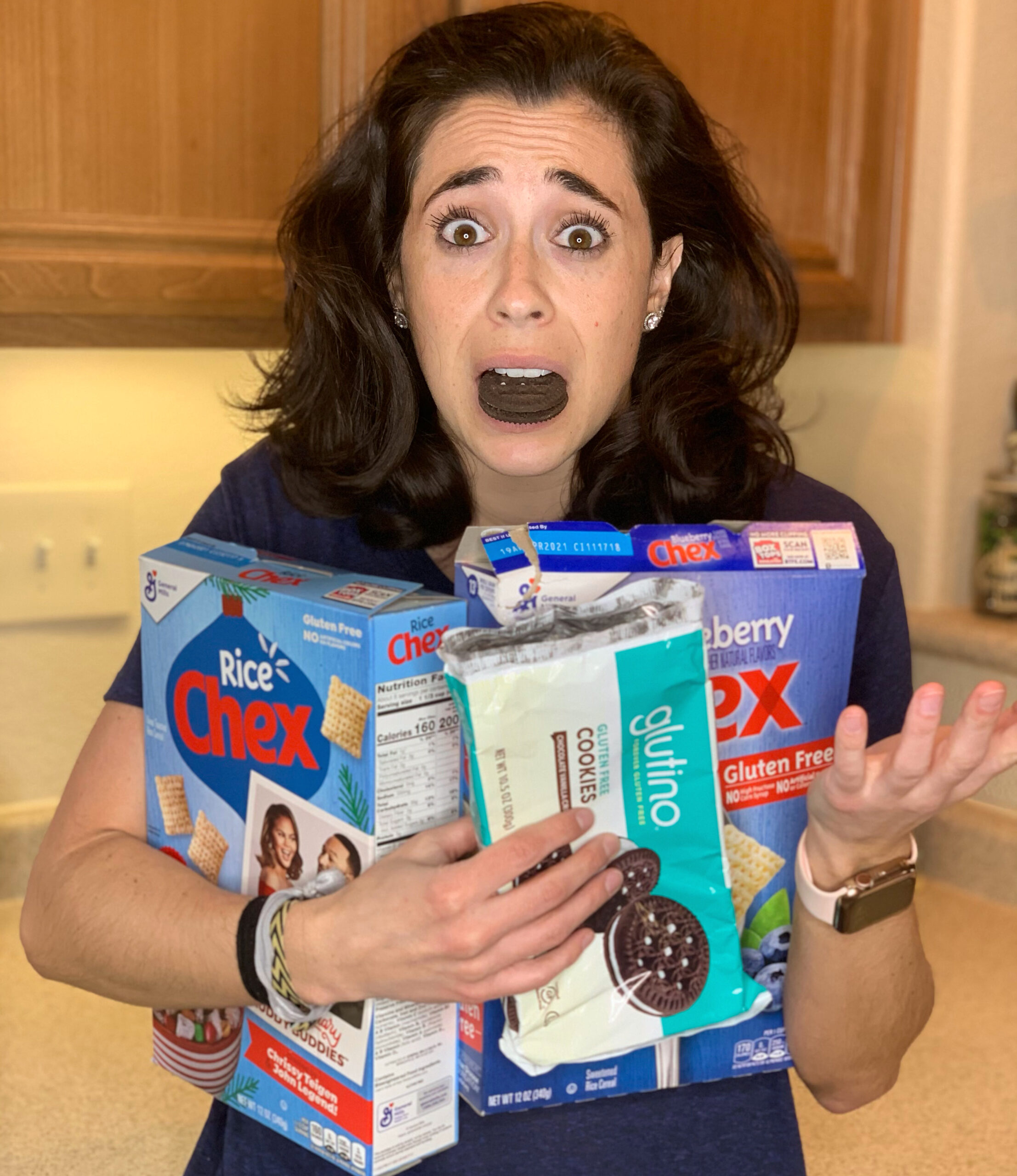Have you ever found yourself continuing to eat even when you know you’re physically full…? Yeah? Me too. And I know lots of people find themselves struggling with this too.
If you’re a fellow former athlete like myself, you may be thinking you just need more self-discipline! More self-control! That having more of these things will be the solution to the problem. Because self-discipline and self-control were really big pieces to your success as an athlete. Set your mind to it. You’ll get it done. Right…?

Only when it comes to food, it feels a lot more challenging to implement more self-discipline and more self-control. Even when you go into a meal convinced you’re going to stop when you’re full or save 1/2 of the meal for later, you find yourself saying “just one more bite!” until you find yourself starring at an empty plate with a bloated and distended stomach. If you’re nodding your head “yes” while reading this, first, I want you to know you are not alone! Second, I want you to know this is not a result of too little self-discipline or self-control. You are a former athlete after all!
Instead, the challenge you face to stop when you’re full is likely a result of one of the following things, or maybe a combination of all three.
- History of restriction: This is a big one! I came from a sport that focused on thinness. It praised bodies that were long and lean and thin. Which was quite the opposite of the body I found myself living in. This drove me to severely restrict my food intake while competing, and also in the years after I retired (fear of gaining weight as an athlete, ya know?) For years I ate 1200 calories or less a day, which is most definitely not enough food for a grown adult, let alone an elite level athlete! (PS: 1200 calories is the nutrition needs of a toddler, not a grown adult). Why do I share this with you? Because your history of restriction can impact how much you eat now. Even if you’re eating “enough”. I call it your “diet trauma”. If you’ve ever found yourself on a diet that’s left you feeling really hungry, or if you chronically under-ate for your body’s energy needs (either intentionally or unintentionally) you likely have some restriction diet trauma. If you’re a former athlete and you have a history of RED-S, you have a history of inadequate energy intake.
- Thinking of food as good/bad: Physical restriction is one thing, but what about MENTAL restriction?! (Check out this study that showed how mental restriction can impact food consumption and your body’s physiological response). Mental restriction is any form of thinking of foods as good or bad, telling yourself you’ll have “just one piece” or “just one bite”, limiting the amount of a certain food you should have in your head, or feeling guilty about eating a food. Wait wait wait, I’m a dietitian, and I am saying there are NO good or bad foods? You bet! Of course foods have different nutrient densities. But that doesn’t make them “good” or “bad”. That just makes them different. Taking the good/bad label OFF of food can help prevent over consumption of that food. AKA, you’re so full but you just keep eating the pasta, or the fries, or the chips and salsa. Instead of viewing foods as good or bad, I like to look at them as more nutrient dense or less nutrient dense. Foods for physical nourishment and foods for emotional nourishment. All food provides physical nourishment in some way, but some foods provide more emotional nourishment than physical. Bottomline, foods have no moral value. They aren’t “good” or “bad”. Foods are just different. My favorite question to ask when trying to determine what food to eat is: “what kind of food will serve me best in this moment?” Not what food is “good” or the lowest in calories, or the highest in protein? What food will serve me best. Emotionally, physical and mentally. When you approach food in this way, it’s a lot easier to stop when you are actually full, without feeling like you’re missing out.
- You’re not eating enough consistently throughout the day: at the most basic physiological level, you need to eat enough, and do so consistently! When you don’t, you will likely feel like you can’t stop eating. “But Katie, I definitely eat enough, but I still can’t stop eating!” Maybe you’re eating enough in general, but are you eating enough consistently throughout the day? That means, are you eating an optimized breakfast? And lunch? And dinner? And snacks? Maybe you’re eating enough calorically, but it’s not spread evenly throughout the day to provide your body with sustained, consistent energy through the day. This can impact feeling in control or out of control around food. It’s not a lack of willpower. It’s physiology!
Looking for more support to feel in control around food, confident making food choices, and feel good in your body? JOIN US inside The Fueled Former Athlete Academy!
